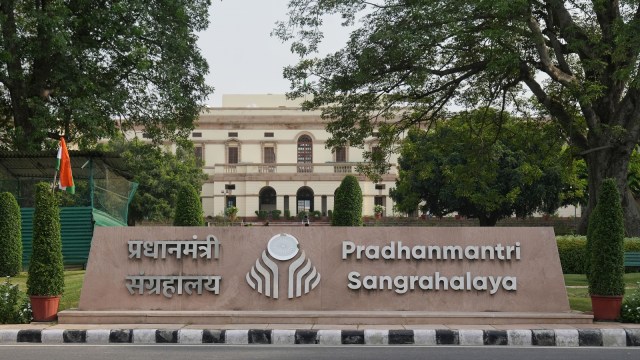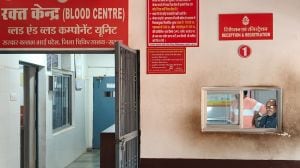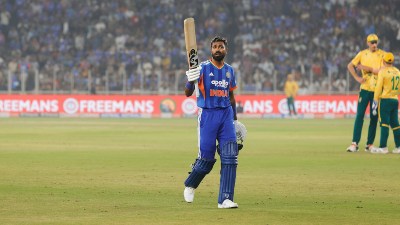With Congress leader Sonia Gandhi reclaiming boxes of papers from Jawaharlal Nehru’s private collection in 2008 (donated by the Gandhi family), and also barring access to several sets of these papers, the Prime Ministers Museum & Library (PMML) has now decided that it will not permit future donors of private papers of eminent personalities to impose indefinite conditions on the declassification of such material.
Going forward, the PMML will permit a five-year embargo before accepting any new set of papers from donors from the date of receipt, which at the most can go up to 10 years in some cases, The Indian Express has learnt.

The PMML has also decided to go ahead and open up, on its own, sets of private collections lying in its custody for several decades, pertaining to first Lok Sabha Speaker G D Mavalankar, Nehru’s niece Nayantara Sahgal, and as many as 2.80 lakh pages pertaining to Nehru that were not claimed by Sonia Gandhi in 2008, a source said.
The Nehru papers are being digitised presently and the entire set will be available to researchers online in two months, in a searchable format, the source said.
In the past, donors (like the Gandhi family did with Nehru’s private papers) could impose an indefinite embargo on disclosing private papers, which meant that the PMML, despite having custodianship, could not make these public to researchers without the donor’s permission.
The decision to take unconditional donation of papers comes even as the PMML sought legal opinion on the ownership and custodianship of the Nehru papers, which were reclaimed by Sonia Gandhi in 2008.
As first reported by The Indian Express, the PMML Society had discussed at length the status of the papers in Sonia Gandhi’s custody in its last annual general meeting in February, following which it was decided that a legal opinion will be sought on whether the PMML can reclaim those papers.
Story continues below this ad
According to PMML records, the papers reclaimed by Gandhi include letters exchanged between Nehru and Jayaprakash Narayan, Edwina Mountbatten, Albert Einstein, Aruna Asaf Ali, Vijaya Lakshmi Pandit and Babu Jagjivan Ram.
It is learnt that the PMML Society received a response that it may not be legally tenable to reclaim Nehru papers claimed by Sonia Gandhi since they were taken with due permission of the then management. In 2008, the UPA government was at the Centre and the PMML Society (then the Nehru Memorial or NMML) was helmed by an appointee of the Nehru-Gandhi family.
The Nehru papers were donated after 1971 by Indira Gandhi and later by Sonia Gandhi. However, at the recent AGM, chaired by Defence Minister Rajnath Singh, a large part of the discussion centred on Nehru’s private papers in the PMML collection, out of which 51 boxes were taken back by Sonia Gandhi in May 2008.
In recent years, several members of the Society have pitched for taking back the letters exchanged between Nehru and Edwina from Sonia Gandhi’s custody, and also to conduct a “forensic audit” of the rest of the lot to ensure no more important papers are missing.
Story continues below this ad
Ahmedabad-based Rizwan Kadri, one of the PMML members, told The Indian Express: “Ever since I was appointed in 2019, I have been trying to broach this issue at the AGM. I had suggested a proper subject-wise indexing of the Nehru papers, and also to conduct a forensic audit of the present collection so that we know if any controversial papers were destroyed subsequently by those close to the Nehru-Gandhi family.”
Kadri, who said he had been following up on the issue persistently through official communication, said it amounted to playing with history if some of these papers were shredded or destroyed. He said several other members had seconded his suggestions.
The Jawaharlal Nehru papers were the first set of private papers obtained by PMML. The PMML has the largest collection of private papers in the country, originally belonging to some 1,000 personalities of modern India, encompassing the entire spectrum of its leadership.
When various sets of personal papers were handed over to the institution, conditions were set by respective donors on their declassification — which went up to 30-35 years in some cases, or till the time the subject is alive.









